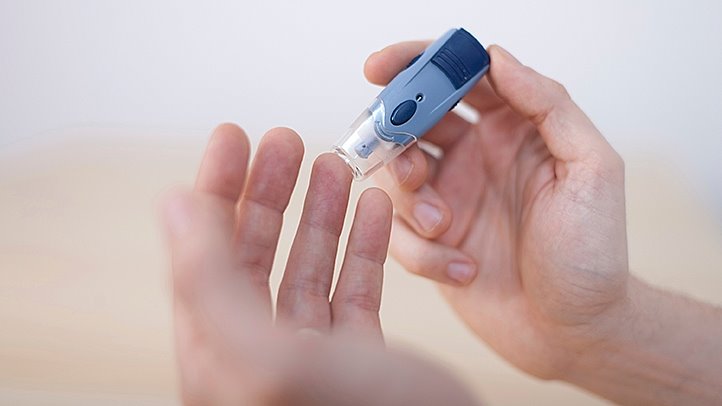Vitamin D can play an essential role in avoiding diabetes and achieving optimal health, according to research. This essential nutrient is believed to provide protection against insulin resistance and this is because rather than being a vitamin it is actually a hormone.
This is because the body needs to synthesize its own Vitamin D and it does this through dietary sources and exposure to sunlight. Vitamin D plays an essential part in the growth and maintenance of strong bones and a healthy immune system. It can even ward off depression, reduce blood pressure, improve brain function and even reduce the risk of cancer in the long term.
Many people around the world are deficient in Vitamin D and this is because living indoors and consuming unhealthy diets with many processed foods have contributed towards a global epidemic of Vitamin D deficiency. This means that people who live with or who are at risk of developing diabetes can be worse off if they fail to get the sufficient amount of Vitamin D needed for optimal health.
The Link Between Vitamin D and Insulin
Vitamin D levels can affect insulin sensitivity and glucose metabolism. Insulin is the hormone produced within the pancreas and this regulates glucose levels (sugar) within the bloodstream. If insulin levels are too low then this may lead to serious health problems including Type 2 diabetes. The most common form of Diabetes is Type 2 and this is a condition where people become resistant to their their own insulin. This means that Diabetes Type 2 sufferers usually have to get their insulin from an external source like medication so they can maintain the same sugar levels.
One study involving 188 participants found that people who had low levels of Vitamin D were more likely to develop pre-diabetes, diabetes or metabolic syndrome. This therefore brings forth the question that if Vitamin D deficiency is linked with an increased risk of developing diabetes, does getting more Vitamin D reduce it? A study from India suggested this is the case. 170 participants with pre-diabetes were involved in the study and researchers found that 125 of them were deficient in Vitmain D (defined as having a blood level of 30 nanograms per milliliter or less). Participants were divided into two groups and one received a calcium supplement while the other group received 60,000 IU (international units) of Vitamin D. Both groups were told to exercise for 30 minutes every day and to eat a an appropriate amount of calories.
The results from the study indicated that those who took Vitamin D experienced an 8% reduction risk in developing diabetes, for every unit increase in Vitamin D they consumed. While twice as many participants within the group received Vitamin D and saw their blood sugar levels return to normal compared with the control group.
The study provides good evidence that increased Vitamin D levels can counteract insulin resistance and this normalises blood sugar levels. This is especially beneficial for people who at risk of developing Type 2 diabetes.
Good Sources of Vitamin D
While Vitamin D can be sourced from fortified foods like milk, cheese and yogurt these are not recommended as dairy products can promote inflammation within the body. Other natural sources like eggs and fatty fish may be better but are best consumed organic. One of the best ways to get more Vitamin D is to expose yourself to the sun on a daily basis. Going out into the sun without sunscreen will not immediately give you cancer. While those with a fair complexion should take more precautions, even going out for around 30 minutes of sun exposure every day can produce 10,0o0iU of Vitamin D in your body.
Another way to ensure you get more Vitamin D is to take a natural supplement such as Vitamin D3 which is the only vitamin that the body can manufacture from sunlight (UVB). This plays an important role in bone health and a Vitamin D3 deficiency has been linked with a wide number of health conditions including insulin resistance but also depression, back pain, macular degeneration, impaired immunity, etc.
Recommended Examples
 Vitamin D3 (5000IU) This is an essential combination of Vitamin D3 and Coral Calcium, allowing full absorption in a small dose. It can help to support normal cell growth and regulates over 200 genes in the body.
Vitamin D3 (5000IU) This is an essential combination of Vitamin D3 and Coral Calcium, allowing full absorption in a small dose. It can help to support normal cell growth and regulates over 200 genes in the body.
 Vitamin D3 and K2 Spray™ – This is a sublingual spray containing Vitamin D3 and Vitamin K2 that can help to promote better calcium and phosphorus absorption into the blood and bones. When Vitamin D3 and K2 are combined in this spray they maximise absorption, compared to when they are stand-alone vitamins.
Vitamin D3 and K2 Spray™ – This is a sublingual spray containing Vitamin D3 and Vitamin K2 that can help to promote better calcium and phosphorus absorption into the blood and bones. When Vitamin D3 and K2 are combined in this spray they maximise absorption, compared to when they are stand-alone vitamins.
Also recommended…
Solving Diabetes Type 2 in 27 Days – This book by Robert Redfern of Naturally Healthy Publications can help you to improve your diabetes symptoms in as little as 27 days with his step by step daily rehabilitation health plan. This includes tips for following a naturally healthy diet and lifestyle, along with taking the recommended nutrients that can improve your diabetes.





